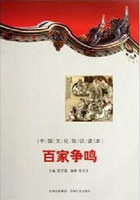The sense of dependence on rites and sacraments, which we have already touched upon in speaking of the Papacy, is not surprising among that part of the people which still believed in the Church.Among those who were more emancipated, it testifies to the strength of youthful impressions, and to the magical force of traditional symbols.The universal desire of dying men for priestly absolution shows that the last remnant of the dread of hell had not, even in the case of one like Vitellozzo, been altogether extinguished.It would hardly be possible to find a more instructive instance than this.The doctrine taught by the Church of the 'character indelibilis' of the priesthood, independently of the personality of the priest, had so far borne fruit that it was possible to loathe the individual and still desire his spiritual gifts.It is true, nevertheless, that there were defiant natures like Galeotto of Mirandola, who died unabsolved in 1499) after living for sixteen years under the ban of the Church.All this time the city lay under an interdict on his account, so that no mass was celebrated and no Christian burial took place.
A splendid contrast to all this is offered by the power exercised over the nation by its great Preachers of Repentance.Other countries of Europe were from time to time moved by the words of saintly monks, but only superficially, in comparison with the periodical upheaval of the Italian conscience.The only man, in fact, who produced a similar effect in Germany during the fifteenth century, was an Italian, born in the Abruzzi, named Giovanni Capistrano.Those natures which bear within them this religious vocation and this commanding earnestness, wore then in Northern countries an intuitive and mystical aspect.In the South they were practical and expansive, and shared in the national gift of oratorical skill.The North produced an 'Imitation of Christ,' which worked silently, at first only within the walls of the monastery, but worked for the ages; the South produced men who made on their fellows an immediate and mighty but passing impression.
This impression consisted chiefly in the awakening of the conscience.
The sermons were moral exhortations free from abstract notions and full of practical application, rendered more impressive by the saintly and ascetic character of the preacher, and by the miracles which, even against his will, the inflamed imagination of the people attributed to him.The most powerful argument used was not the threat of Hell and Purgatory, but rather the living results of the 'maledizione,' the temporal ruin wrought on the individual by the curse which clings to wrong-doing.The grieving of Christ and the Saints has its consequences in this life.And only thus could men, sunk in passion and guilt, be brought to repentance and amendment--which was the chief object of these sermons.
Among these preachers were Bernardino da Siena, Alberto da Sarzana, Jacopo della Marca, Giovanni Capistrano, Roberto da Lecce and others j and finally, Girolamo Savonarola.No prejudice of the day was stronger than that against the mendicant friar, and this they overcame.They were criticized and ridiculed by a scornful humanism; but when they raised their voices, no one gave heed to the humanists.The thing was no novelty, and the scoffing Florentines had already in the fourteenth century learned to caricature it whenever it appeared in the pulpit.
But no sooner did Savonarola come forward than he carried the people so triumphantly with him, that soon all their beloved art and culture melted away ill the furnace which he lighted.Even the grossest profanation done to the cause by hypocritical monks, who got up an effect in the audience by means of confederates, could not bring the thing itself into discredit.Men kept on laughing at the ordinary monkish sermons, with their spurious miracles and manufactured relics;but did not cease to honour the great and genuine preachers.These are a true speciality of the fifteenth century.
The Order--generally that of St.Francis, and more particularly the so-called Observantines--sent them out according as they were wanted.This was commonly the case when there was some important public or private feud in a city, or some alarming outbreak of violence, immorality, or disease.When once the reputation of a preacher was made, the cities were all anxious to hear him even without any special occasion.He went wherever his superiors sent him.A special form of this work was the preaching of a Crusade against the Turks; but here we have to speak more particularly of the exhortations to repentance.
The order of these, when they were treated methodically, seems to have followed the customary list of the deadly sins.The more pressing, however, the occasion is, the more directly does the preacher make for his main point.He begins perhaps in one of the great churches of the Order, or in the cathedral.Soon the largest piazza is too small for the crowds which throng from every side to hear him, and he himself can hardly move without risking his life.The sermon is commonly followed by a great procession; but the first magistrates of the city, who take him in their midst, can hardly save him from the multitude of women who throng to kiss his hands and feet, and cut off fragments from his cowl.
The most immediate consequences which follow from the preacher's denunciations of usury, luxury, and scandalous fashions, are the opening of the gaols--which meant no more than the discharge of the poorest debtors--and the burning of various instruments of luxury and amusement, whether innocent or not.Among these are dice, cards, games of all kinds, written incantations, masks, musical instruments, song-books, false hair, and so forth.All these would then be gracefully arranged on a scaffold ('talamo'), a figure of the devil fastened to the top, and then the whole set on fire.















